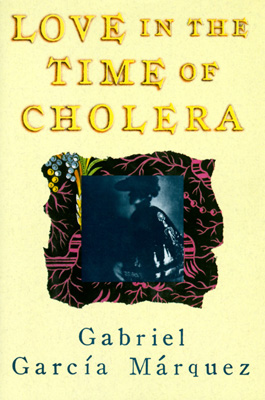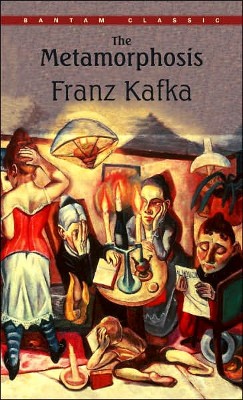...
In the floating world of that particular kind of balian, there existed an inner hierarchy of sorcery--not precisely political, but rather orbits of admiration that gravitated toward an elusive center. When Klinyar's parents thought about these events later, they recalled that long before they'd noticed it, there had been significant interest in Klinyar from some obscure but significant magical quarter. That interest emanated from the archwitch Dayu Datu.
A child with faculties of mutation and a bad temper could be molded into a formidable weapon. A deal was arranged.
The transaction, carried out through intermediaries and with all due account for protocol both calendric and personal, took forty-two days to negotiate.
In intervals of three days, and five and seven, with adjustments for the progress of the moon and the decay of the season, it was gradually determined that the child Ni Klinyar, aged eight, accompanied by four sacks of raw rice, a black rooster, three batiked sarongs, two thousand Chinese coins, several loops of cotton string (black, red, and plain white), a young yellow coconut and various other implements of Balinese ritual, plus several more unusual items--a size 32AA brassiere, a bottle of nail polish remover, and a Japanese-Indonesian dictionary--for this bride-gold, then, little Klinyar would be taken off the hands of her exhausted and embarrassed parents, although by exactly whom they never knew."
The Two Numantias: "I spend hours at a time sitting on my throne facing the orange tree in my courtyard in Rome. It's about to bear fruit, and I want to be the first to see it flower. I shall make the orange tree my interlocutor during these afternoon hours. I've given up shaving; I can only think if I caress my neck, which is covered in bristles. The problem of duality obsesses me. I invent a theory of geometric duality. If it is true that any two lines define a point at their intersection and that any two points determine a line, it follows that when all points touch an ellipse they exhaust themselves. Their unity concentrates and immediately requires the protection of a double to shield and prolong that unity. From this it follows that all unity, once attained, requires a duality in order to prolong itself, to maintain itself."
Friar Park: "Another of our secret meetings took place in London one afternoon. The Dominos had finally left Hurtwood Edge and moved into a flat in South Kensington, which that afternoon was empty. Eric took me there because he wanted me to listen to a song he had written. He switched on the tape machine, turned up the volume, and played me the most powerful, moving song I had ever heard.
It was "Layla"--about a man that falls hopelessly in love with a woman who loves him but is unavailable. He had read the story in a book he had been given by a mutual friend, Ian Dallas. Ian had given me a copy too. It was called The Story of Layla and Majnun by the Persian writer Nizami. Eric had identified with Majnun, and was determined that I should know how he felt. He had written the song at home and recorded it in Miami with the Dominos."
Love and Trust: "Women, by contrast, are able to bond with a romantic partner once they experience the release of dopamine and oxytocin, triggered by touching and the giving and receiving of sexual pleasure. Perhaps keeping my feet warm isn't my husband's primary responsibility in bed, but cuddling to release oxytocin is. Over time, even the sight of a lover can cue a woman to release oxytocin.
The exceptional bonding power of oxytocin and vasopressin has been studied in great detail by Sue Carter in those furry little mammals called prairie voles, who form lifelong mating partnerships. Like humans, the voles are filled with physical passion when they first meet and spend two days indulging in virtually nonstop sex. But unlike in humans, the chemical changes in the voles' brains can be examined directly in the source of this frolicking. These studies show that sexual coupling releases large amounts of oxytocin in the female's brain and vasopressin in the male's. These two neurohormones in turn increase levels of dopamine--the pleasure chemical--which makes the voles love-struck only for each other. Thanks to that strong neurochemical glue, the pair is mated for life.
In both males and females, oxytocin causes relaxation, fearlessness, bonding, and contentment with each other. And to maintain its effects long-term, the brain's attachment system needs repeated, almost daily activation through oxytocin stimulated by closeness and touch. Males need to be touched two to three times more frequently than females to maintain the same level of oxytocin, according to a study by the Swedish researcher Kerstin Uvnäs-Moberg. Without frequent touch--for example, when mates are apart--the brain's dopamine and oxytocin circuits and receptors can feel starved. Couples may not realize how much they depend on each other's physical presence until they are separated for a while; the oxytocin in their brains keep them coming back to each other, again and again, for pleasure, for comfort, and calm."
Robert Penn Warren's "Birth of Love"
Season late, day late, sun just down, and the sky
Cold gunmetal but with a wash of live rose, and she,
From water the color of sky except where
Her motion has fractured it to shivering splinters of silver,
Rises. Stands on the raw grass. Against
The new-curdling night of spruces, nakedness
Glimmers and, at bosom and flank, drips
With fluent silver. The man,
Some ten strokes out, but now hanging
Motionless in the gunmetal water, feet
Cold with the coldness of depth, all
History dissolving from him, is
Nothing but an eye. Is an eye only. Sees
The body that is marked by his use, and Time's,
Rise, and in the abrupt and unsustaining element of air,
Sway, lean, grapple the pond-bank. Sees
How, with that posture of female awkwardness that is,
And is the stab of, suddenly perceived grace, breasts bulge
______down in
The pure curve of their weight and buttocks
Moon up and, in that swelling unity,
Are silver, and glimmer. Then
The body is erect, she is herself, whatever
Self she may be, and with an end of the towel grasped in each
_____hand,
Slowly draws it back and forth across back and buttocks, but
With face lifted toward the high sky, where
The over-wash of rose color now fails. Fails, though no star
Yet throbs there. The towel, forgotten,
Does not move now. The gaze
Remains fixed on the sky. The body,
Profiled against the darkness of spruces, seems
To draw to itself, and condense in its whiteness, what light
In the sky yet lingers or, from
The metallic and abstract severity of water, lifts. The body,
With the towel now trailing loose from one hand, is
A white stalk from which the face flowers gravely toward the
_____high sky.
This moment is non-sequential and absolute, and admits
Of no definition, for it
Subsumes all other, and sequential, moments, by which
Definition might be possible. The woman,
Face yet raised, wraps
With a motion as though standing in sleep,
The towel about her body, under the breasts, and,
Holding it there, hieratic as lost Egypt and erect,
Moves up the path that, stair-steep, winds
Into the clamber and tangle of growth. Beyond
The lattice of dusk-dripping leaves, whiteness
Dimly glimmers, goes. Glimmers and is gone, and the man,
Suspending in his darkling medium, stares
Upward where, though not visible, he knows
She moves, and in his heart he cries out that, if only
He had such strength, he would put his hand forth
And maintain it over her to guard, in all
Her out-goings and in-comings, from whatever
Inclemency of sky or slur of the world's weather
Might ever be. In his heart
He cries out. Above
Height of the spruce-night and heave of the far mountain, he
____sees
The first star pulse into being. It gleams there.
I do not know what promise it makes to him.
Primavera: "The last word about this perpetually alluring allegory has yet to be written. For example, the orange grove, so similar to the one that separates foreground from background in Uccello's San Romano panels, may have other connotations. Oranges cannot be raised outdoors in the Arno Valley, and to a Florentine Quattrocento eye these golden orbs could hardly have failed to suggest the Medici coat of arms. Also, Mercury's: beautiful rose-colored chlamys is strewn with golden flames, a proper attribute of the god but one that also belongs to St. Lawrence (Lorenzo). They decorate his vestments in Fra Angelico's San Marco alterpiece made for Cosimo de' Medici, and many other representations; the meteor showers that descend on the earth in August each year are known in Italy as "fires of St. Lawrence" because they occur at the time of his feast. This attribute shared by the two Lorenzos also decorates Venus's white gown, which is bordered at the neckline with a continuous row of golden flames, while loops of these flames encircle her breasts. Finally, Mercury also bore the responsibility for doctors, whose symbol, the caduceus, he bears. Medici means "doctors," and the Medici patron saints were the doctors Cosmas and Damian.
The metaphor was standard in any eulogy of the Medici family."






20 comments:
Thank you for reminding me of this. I want to have the humility and optimism to love you, and without touching everything with an exposed free nerve ending.
I frequently consider how my older self has learned with few models to adapt to caretaking and obligation, both of which anchor intimacy, but stifle desire. I want to remain sensitive to these tensions.
Yes, you are the authority, but we both know that deference all the time is unsatisfying. Also, as someone who has developed potential, you should not expect less from me.
The provisional conclusions I form in my writing test this potential, this future shaped by commitment, exploration, while having something externalized for review.
*everything with exposed free nerve endings
That is the basis of erotics, to fearlessly access the mystery still gauged from a distance.
The Intractactable
From Roland Barthes's A Lover's Discourse
affirmation/affirmation
Against and in spite of everything, the subject affirms love as a value.
[...] Though I listen to all the arguments which the most divergent systems employ to demystify, to limit, to erase, in short to depreciate love, I persist: "I know, I know...but all the same."
No, not the scenario of various literary triangles. I think I dropped those in because they satisfied the number constraint.... Chapter 7 or 8 in the record.
https://docs.google.com/file/d/0B3DfyJRIT4jyOVktbVZ4Q21HdG8/edit
Exercise 18 will go here.
https://drive.google.com/file/d/0B3DfyJRIT4jyN2REU040RjZrd0k/edit?usp=sharing
https://www.swatch.com/en-us/allegoria-della-primavera-by-botticelli-suoz357/SUOZ357.html
I like the Allegoria Swatch. I wear it at work.
Exercise 91 goes here.
It is not laziness but exhaustion, right now. I will get it together.
The Birth of Venus Swatch is nice, while not suitable for wearing, overall.
I like the suggestion that the painting is an experiment in oil to look like Flemish tapestry.Two things I would like to do: make an Exercise like a vibrant papercut and make one little a contemporary tapestry, crammed and flat with contemporary moths, butterflies, birds and their host plants.
https://www.clevelandart.org/art/1942.824
https://news.artnet.com/art-world/sandro-botticelli-primavera-4-things-to-know-1937013
Looking back, I like the Robert Penn Warren poem excerpted here. I will eventually read All the Kings Men (1946).
I think about our life together. What book are we going to read? Should we buy two or remember our page and leave it on the dining room table, "the current book."
To look like a Shavuot papercut, to the last comment.
https://youtu.be/CoF-hCvH6lU?si=YCZD3Riu9W1Kg6fX
https://books.google.com/books?id=kT4TAAAAQBAJ&pg=PT35&dq=marge+piercy+%22The+cast+off%22&hl=en&newbks=1&newbks_redir=0&source=gb_mobile_search&sa=X&ved=2ahUKEwjImqrzwIWGAxXa4skDHQvzBiAQ6AF6BAgJEAM#v=onepage&q=marge%20piercy%20%22The%20cast%20off%22&f=false
https://books.google.com/books?id=qZozDwAAQBAJ&printsec=frontcover&dq=marge+piercy+paper+cuts+shavuot&hl=en&newbks=1&newbks_redir=0&source=gb_mobile_search&sa=X&ved=2ahUKEwjb7p7-v4WGAxUT78kDHb_gAoQQ6AF6BAgOEAM#v=onepage&q&f=false
I started this months ago, and resumed it today. I changed my schedule to have Sunday off to rest and finish my texts.
https://judaicaspot.com/products/teshuva-rebbetzin-s-feldbrand?srsltid=AfmBOopqas19Fi6LcLHEdXdSE1tV9Us-XBokS6LFSQNNakmi1jRutIqh
I have to cart my heated comestibles to work in the morning for this holiday. I work tomorrow and the day after the holiday. The lunatics showed up on time.
I have never seen this. I told the neurologist, if you give me some meds to push for this post-ictal madness, then the restraints can go away, and they did.
https://www.tidiproducts.com/restraints-and-restraints-alternatives/limb-holders-and-restraints/locking/cuffs/key-lock-closure
https://pmc.ncbi.nlm.nih.gov/articles/PMC1555577/#:~:text=Postictal%20psychosis%20(PIP)%2C%20an,hallucinations%20and%20disorders%20of%20thought.
When I cater to ungrateful individuals, I tell myself not to be angry, every year. One of the near-retirees phoned this afternoon, inquiring about the menu and the patient mix, and he came in, and I was happy. At least he didn't have to spend T-giving alone.
https://www.youtube.com/watch?v=roWyCx-vr5E
https://www.livekabbalah.com/blog/Secrets-of-The-Month-Of-Kislev-Sagittarius
https://www.sefaria.org/Psalms.128.1?lang=bi&with=Midrash%20Tehillim
https://pubmed.ncbi.nlm.nih.gov/25712575/
https://poets.org/poem/way-love-god
I have a golf ball-sized bruise where I slipped down the snow covered stairs yesterday morning when my brother took me to work. It upset the Fresh Market bags and ruined the appearance of the cake. Everything was consumed; nevertheless. DoorDash was not available, and the hospital catered sketti and steamed broccoli was not a temptation.
I think about this, if I did not have a strong person to drive me to work with chains on the front tires, I would have to stay there like a prisoner to sleep on an air mattress. Keith redeemed himself that day and night. He drove me and my mother and her coworker back and forth to work.
Post a Comment